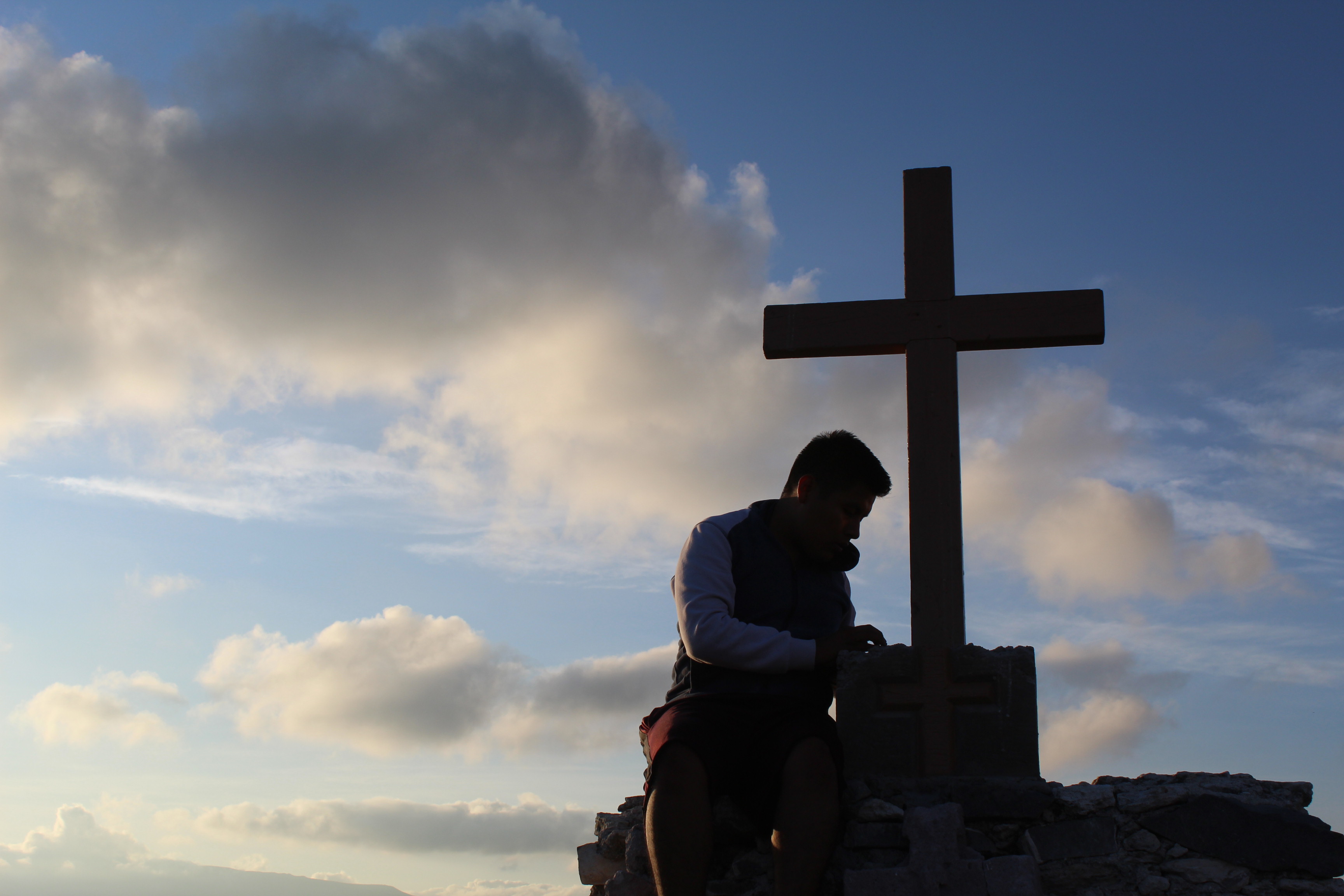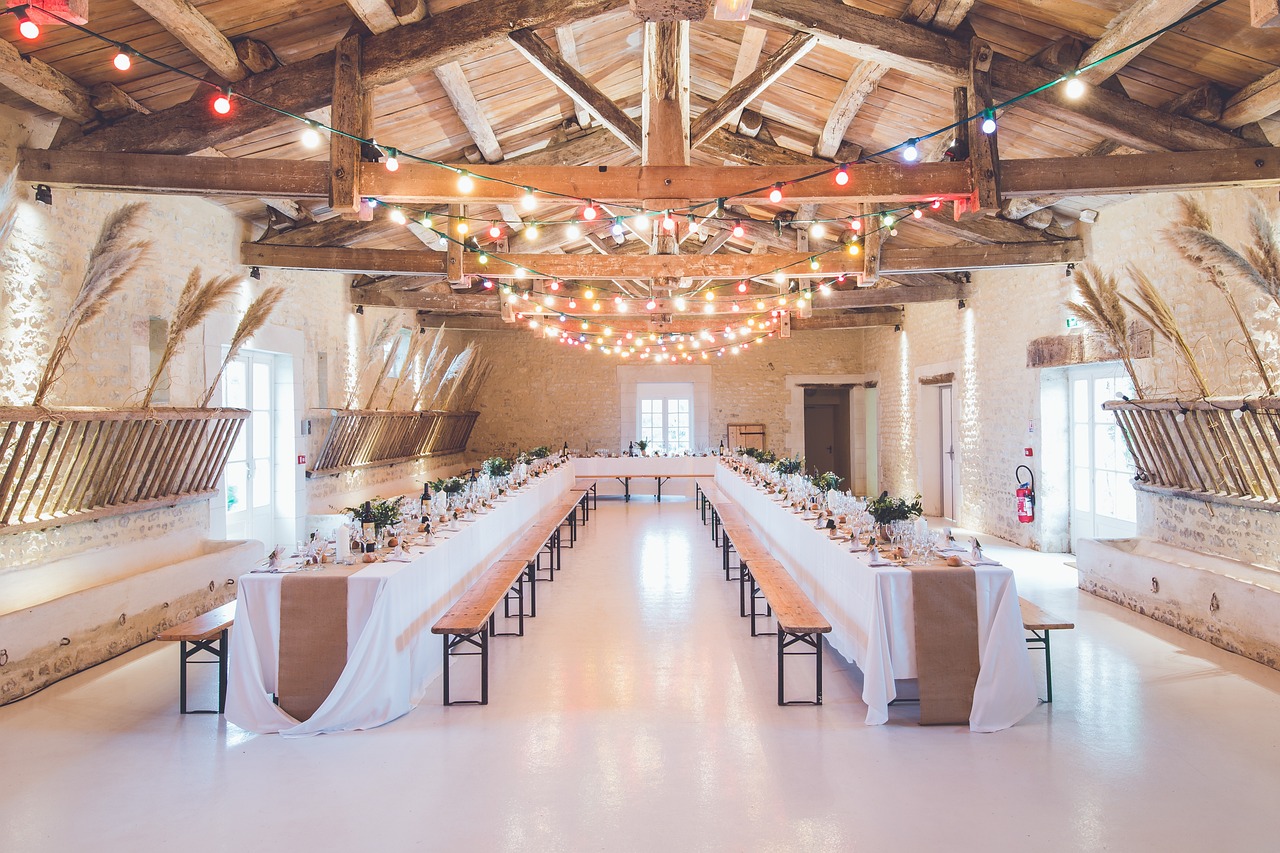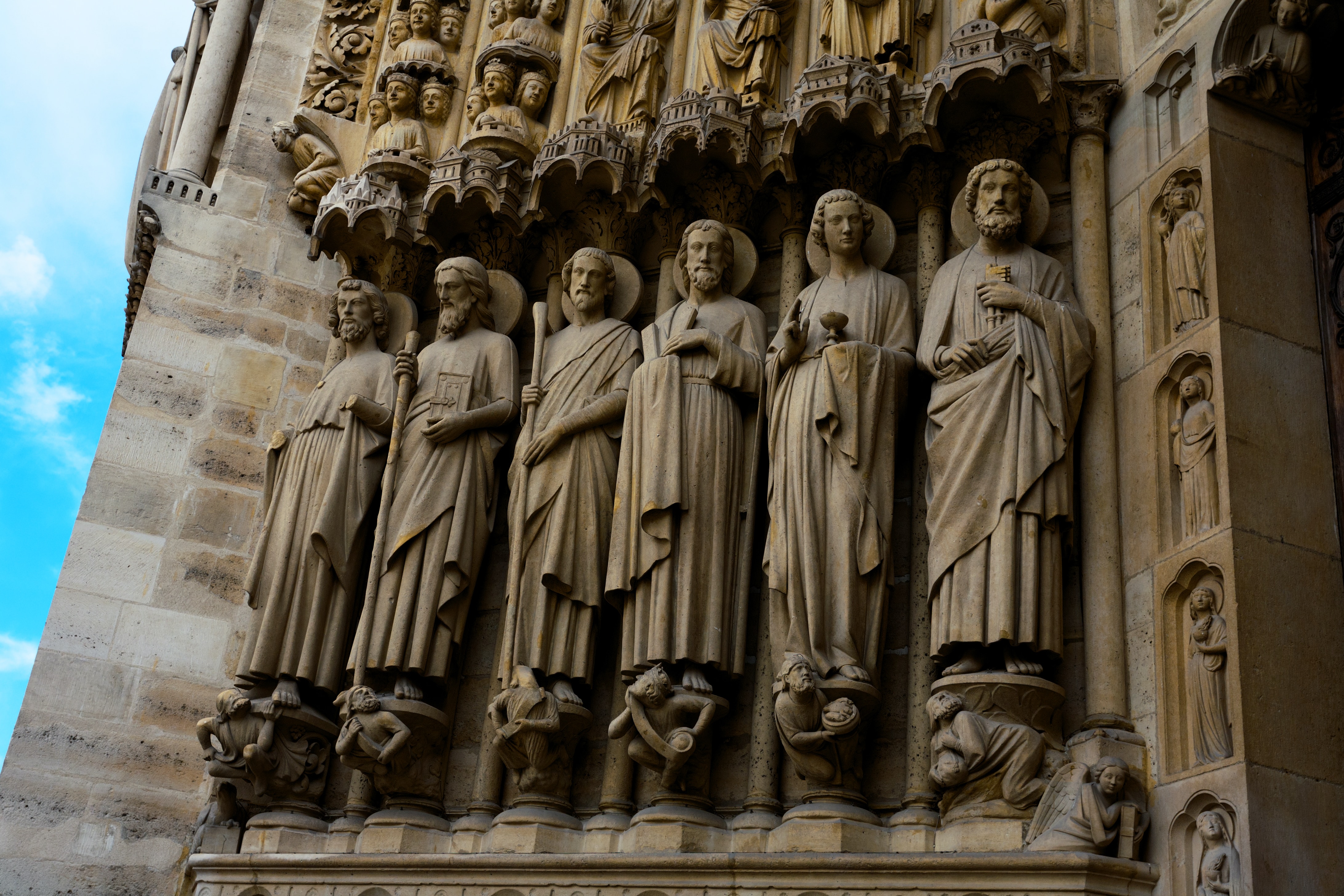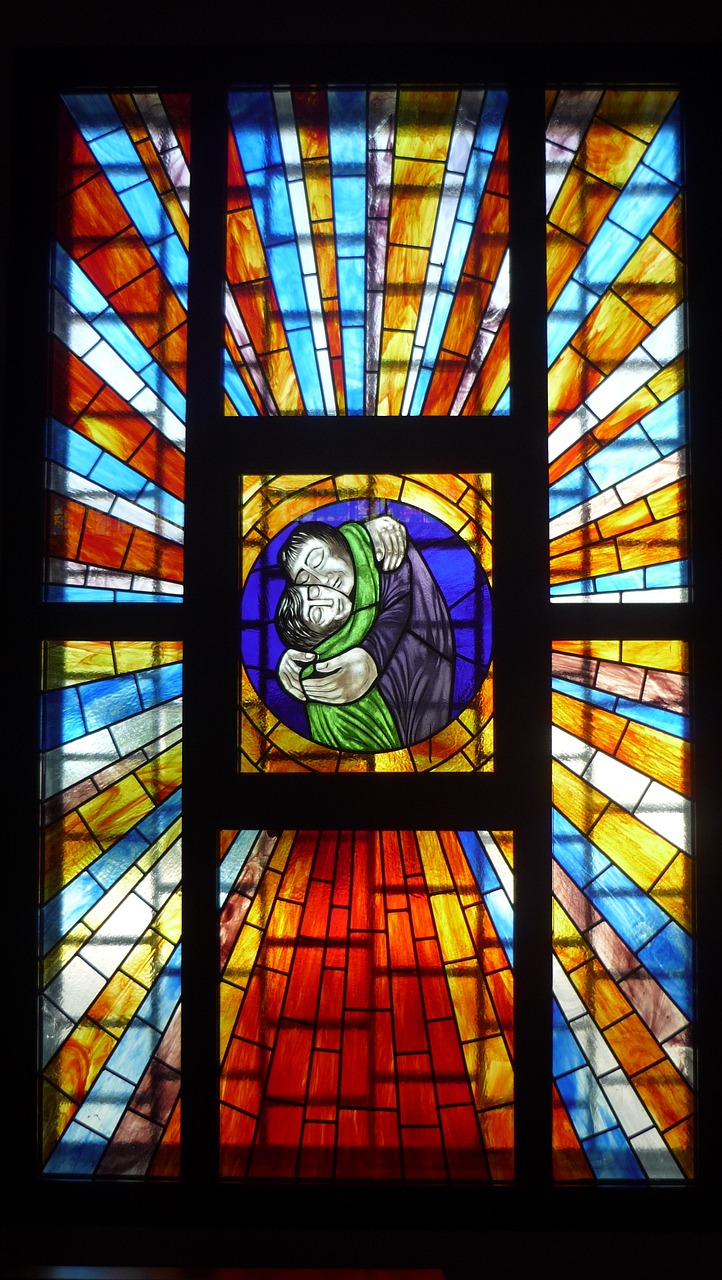Today’s Gospel is a difficult one to read. We know Jesus is fully human, and therefore He must have experienced all ranges of human emotion. In this passage, we see Jesus’ anger come to the fore as He drives the money changers and those selling animals for sacrifice out of the temple area with a whip. Seeing this side of Jesus can make us pause. This Jesus doesn’t quite fit with the calm, compassionate Jesus in the field with sheep and children and flowers. Yet this is perhaps one of the more important passages to consider when we start to paint our own pictures of who Jesus is in our minds. Jesus was a real person. Jesus is a real person. And real people have real emotions. What makes Jesus different is that His emotions never led Him to sin.
So what was Jesus really angry about in this passage? When you review the facts, it might be surprising that He was upset at all. It was God who demanded sacrifices be made at the temple. God told Moses what kinds of animals would be accepted, how many, when, and for what. Money changers were a necessary part of this as people would come from many countries to follow God’s laws concerning temple visits. So what was the big deal?
You likely know the phrase, “Don’t miss the forest for the trees.” This is often what Jesus is getting at when it comes to the religious leadership of His time. They had become so focused on the minute details of Scripture they were losing sight of God’s larger plan of love. They wanted so desperately to follow each prescription that they forgot the reason for them in the first place – to place love at the center of your heart.
This is a lesson all of us need to continue striving to learn. The Pharisees were on the whole, not bad people. Some even came to believe in Jesus. The same temptations they faced we face today. Do we go to Mass because we have to, or because we desire to deepen our relationship with Jesus. Do our kids go to Religious Education classes because we desire for them to know Jesus? Or is it because we know it’s culturally important that they receive their First Communion and then after that, maybe it’s not so important to attend anymore? Do we pray for someone when they ask us, or do we forget the power of prayer?
Jesus wants to come into our lives to give us His love and mercy. It’s up to us how ready we are to receive Him.
El Evangelio de hoy es difícil de leer. Sabemos que Jesús es completamente humano y, por lo tanto, debe haber experimentado todas las gamas de emociones humanas. En este pasaje, vemos que la ira de Jesús sale a la luz cuando expulsa con un látigo a los cambistas y a los que venden animales para el sacrificio fuera del área del templo. Ver este lado de Jesús puede darnos pausa. Este Jesús no encaja del todo con el Jesús tranquilo y compasivo en el campo con ovejas, niños y flores. Sin embargo, este es quizás uno de los pasajes más importantes a considerar cuando comenzamos a pintar nuestras propias imágenes de quién es Jesús en nuestras mentes. Jesús era una persona real. Jesús es una persona real. Y la gente real tiene emociones reales. Lo que hace diferente a Jesús es que sus emociones nunca lo llevaron a pecar.
Entonces, ¿por qué estaba enojado Jesús en este pasaje? Cuando revisas los hechos, puede ser sorprendente que estuviera molesto. Fue Dios quien exigió que se hicieran sacrificios en el templo. Dios le dijo a Moisés qué tipo de animales serían aceptados, cuántos, cuándo y para qué. Los cambistas eran una parte necesaria de esto, ya que vendría gente de muchos países para seguir las leyes de Dios con respecto a las visitas al templo. Entonces, ¿cuál fue el problema?
Probablemente conozcas la frase: “No pierdas el bosque por los árboles”. Esto es a menudo a lo que Jesús se refiere cuando se trata del liderazgo religioso de su tiempo. Se habían centrado tanto en los detalles minuciosos de las Escrituras que estaban perdiendo de vista el plan de amor más grande de Dios. Querían seguir cada prescripción tan desesperadamente que se olvidaron de la razón principal de seguirlas: que el amor esté en el centro de sus corazones.
Es una lección que todos debemos seguir esforzándonos por aprender. Los fariseos, en general, no eran malas personas. Algunos incluso llegaron a creer en Jesús. Las mismas tentaciones que ellos enfrentaron enfrentamos hoy. ¿Vamos a misa porque tenemos que hacerlo o porque deseamos profundizar nuestra relación con Jesús? ¿Nuestros hijos van a clases de Educación Religiosa porque deseamos que conozcan a Jesús? ¿O es porque sabemos que es culturalmente importante que reciban su Primera Comunión y después de eso, tal vez ya no sea tan importante asistir? ¿Oramos por alguien cuando nos lo piden, o nos olvidamos del poder de la oración?
Jesús quiere entrar en nuestras vidas para darnos su amor y misericordia. Depende de nosotros cuán listos estemos para recibirlo.
 Kate Taliaferro is an Air Force wife and mother. She is blessed to be able to homeschool, bake bread and fold endless piles of laundry. When not planning a school day, writing a blog post or cooking pasta, Kate can be found curled up with a book or working with some kind of fiber craft. Kate blogs at DailyGraces.net.
Kate Taliaferro is an Air Force wife and mother. She is blessed to be able to homeschool, bake bread and fold endless piles of laundry. When not planning a school day, writing a blog post or cooking pasta, Kate can be found curled up with a book or working with some kind of fiber craft. Kate blogs at DailyGraces.net.
Feature Image Credit: Valiphotos, pixabay.com/photos/forest-trees-sun-rays-sunlight-fog-1072828/


 Dakota lives in Denver, CO with her husband, Ralph, and their two sons, Alfie & Theophilus. She is the Dean of Enrollment Management for Bishop Machebeuf High School where her husband also teaches. You can find Dakota at the zoo or a brewery with her family or with her nose in a book at home. For more of Dakota’s writing check out
Dakota lives in Denver, CO with her husband, Ralph, and their two sons, Alfie & Theophilus. She is the Dean of Enrollment Management for Bishop Machebeuf High School where her husband also teaches. You can find Dakota at the zoo or a brewery with her family or with her nose in a book at home. For more of Dakota’s writing check out 
 Allison Gingras (
Allison Gingras ( 


 Dr. Alexis Dallara-Marsh is a board-certified neurologist who practices in Bergen County, NJ. She is a wife to her best friend, Akeem, and a mother of two little ones on Earth and two others in heaven above.
Dr. Alexis Dallara-Marsh is a board-certified neurologist who practices in Bergen County, NJ. She is a wife to her best friend, Akeem, and a mother of two little ones on Earth and two others in heaven above.


 Sheryl is happy to be the number 1 cheerleader and supporter for her husband, Tom who is a candidate for the Permanent Diaconate in the Diocese of Kalamazoo. They are so grateful for the opportunity to grow together in this process. Sheryl’s day job is serving her community as the principal for St. Therese Catholic School in Wayland, Michigan. Since every time she thinks she gets life all figured out, she realizes just how far she has to go, St. Rita of Cascia is her go-to Saint for intercession and help. Home includes Carlyn, a very, very goofy Golden Retriever and Lucy, our not-so-little rescue puppy.
Sheryl is happy to be the number 1 cheerleader and supporter for her husband, Tom who is a candidate for the Permanent Diaconate in the Diocese of Kalamazoo. They are so grateful for the opportunity to grow together in this process. Sheryl’s day job is serving her community as the principal for St. Therese Catholic School in Wayland, Michigan. Since every time she thinks she gets life all figured out, she realizes just how far she has to go, St. Rita of Cascia is her go-to Saint for intercession and help. Home includes Carlyn, a very, very goofy Golden Retriever and Lucy, our not-so-little rescue puppy. 
 Merridith Frediani loves words and is delighted by good sentences. She also loves Lake Michigan, dahlias, the first sip of hot coffee in the morning, millennials, and playing Sheepshead with her husband and three kids. She writes for Catholic Mom, Diocesan.com, and her local Catholic Herald. Her first book Draw Close to Jesus: A Woman’s Guide to Adoration is available at Our Sunday Visitor and Amazon. You can learn more at
Merridith Frediani loves words and is delighted by good sentences. She also loves Lake Michigan, dahlias, the first sip of hot coffee in the morning, millennials, and playing Sheepshead with her husband and three kids. She writes for Catholic Mom, Diocesan.com, and her local Catholic Herald. Her first book Draw Close to Jesus: A Woman’s Guide to Adoration is available at Our Sunday Visitor and Amazon. You can learn more at 



 Leslie Sholly is a Catholic, Southern wife and mother of five, living in her hometown, Knoxville, Tennessee. She graduated from Georgetown University with an English major and Theology minor. She blogs at
Leslie Sholly is a Catholic, Southern wife and mother of five, living in her hometown, Knoxville, Tennessee. She graduated from Georgetown University with an English major and Theology minor. She blogs at 
 David Dashiell is a freelance author and editor in Nashville, Tennessee. He has a master’s degree in theology from Franciscan University, and is the editor of the anthology
David Dashiell is a freelance author and editor in Nashville, Tennessee. He has a master’s degree in theology from Franciscan University, and is the editor of the anthology 